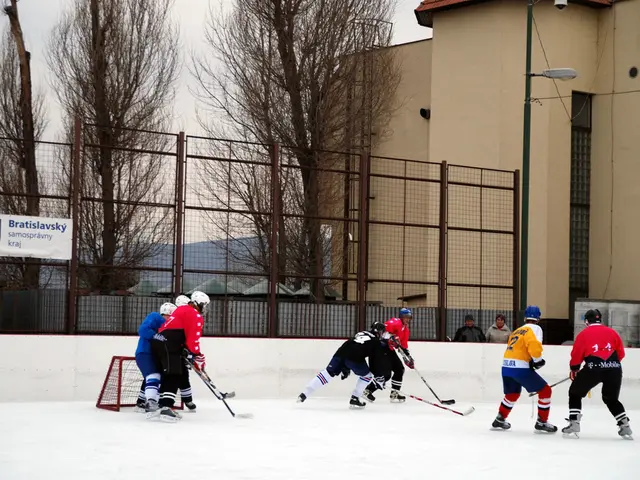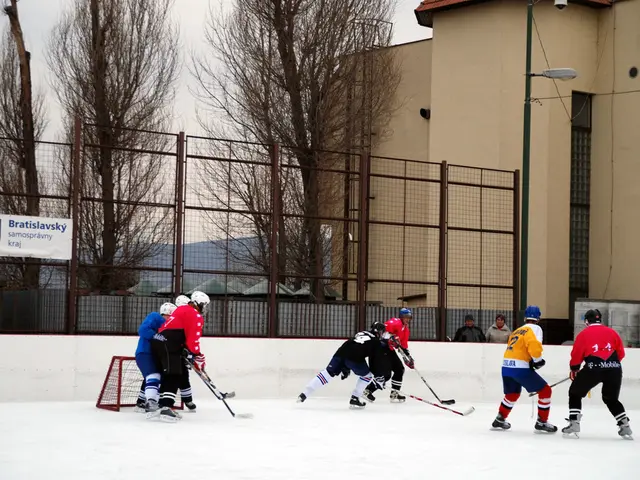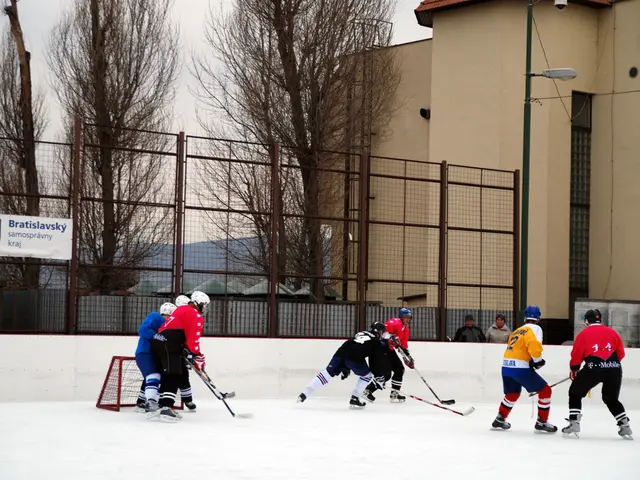South Korean Supreme Court reinstates PM facing suspension due to unrest during martial law periods
In the whirlwind of South Korea's political drama, the Constitutional Court made a bold move, reinstating acting President Han Duck-soo following the dismissal of the impeachment charges against him on Monday. This twist unfolded as the same court mulls over the potential impeachment of suspended President Yoon Suk Yeol, who triggered the upheaval by declaring martial law, causing quite a stir in this significant US treaty ally and economic powerhouse.
Yoon's martial law, declared on December 3, 2024, temporarily put a halt to political activities and even saw troops stationed in the heart of the country's democracy. Six hours later, he rescinded the decree, having been pressured by lawmakers, who stormed the parliament in an unprecedented move to quash the martial law [1].
Subsequently, Han assumed the role of acting president for 13 days, during which he refused to fill one of the three vacant seats in the Constitutional Court. This prompted the main opposition Democratic party to file an impeachment motion against Han, alleging that he violated his constitutional duties and undermined the rule of law by refusing to appoint new justices. The motion also accused him of attempting to collaborate with the ruling party, interfering with state affairs before Yoon was suspended, and stalling the passage of a special investigation law into the first lady [1].
The Democratic Party's charges, however, failed to sway the Constitutional Court. Only one of the eight judges supported the impeachment motion. In its statement, the court declared that there was no conclusive evidence that Han intended to weaken the constitution by withholding justice appointments. Consequently, Han was reinstated to the position of acting President [1].
As Han celebrated the court's decision, it remains unclear whether President Yoon will share the same fate. The court is currently evaluating Yoon's martial law declaration, which he justified as a necessary measure due to the Democratic Party's alleged association with North Korea and "anti-state activities" [2]. York's speech, delivered in an unscheduled television address, led to immediate backlash, with lawmakers forcing their way through soldiers to strike down the decree [2].
Although Yoon's impeachment trial concluded in February, the Constitutional Court has yet to release its decision. The lack of a ruling has caused much anticipation among the public and political circles. The court faces growing pressure to deliver a judgment that addresses the constitutional violations, while also striving for a united decision to mitigate political polarization [1]. It remains to be seen whether South Korea will navigate its political turmoil and emerge stronger or face a deeper crisis.
[1] "South Korea's Constitutional Court Delay Decision on Yoon Impeachment". Reuters. Feb 2025. Web. https://reuters.com/articles/south-koreas-constitutional-court-delays-decision-on-yoon-impeache...[2] "Yoon Suk Yeol announces Martial Law in South Korea". BBC News. Dec 2024. Web. https://bbc.co.uk/news/world-asia-62570923[3] "Yoon Suk Yeol impeachment: South Korean forces block parliament". Al Jazeera. Dec 2024. Web. https://aljazeera.com/news/2024/12/16/yoon-suk-yeol-impeachment-south-korean-forces-block-parliament[4] "Timeline: South Korea's Impeachment Saga". CNN. Mar 2025. Web. https://cnn.com/world/politics/south-korea-impeachment-saga-timeline
Yoon Suk Yeol, under scrutiny, struggles with the prospect of his impeachment as the Constitutional Court evaluates his controversial martial law declaration in December 2024. Sympathizing with the Democratic Party's accusations of constitutional violations and political interference, Asian nations have been closely monitoring South Korea's political turmoil in the hopes of a united decision. As Yoon's impeachment trial concludes, Asian countries eagerly await the Constitutional Court's decision in February 2025, which may determine South Korea's political future.








